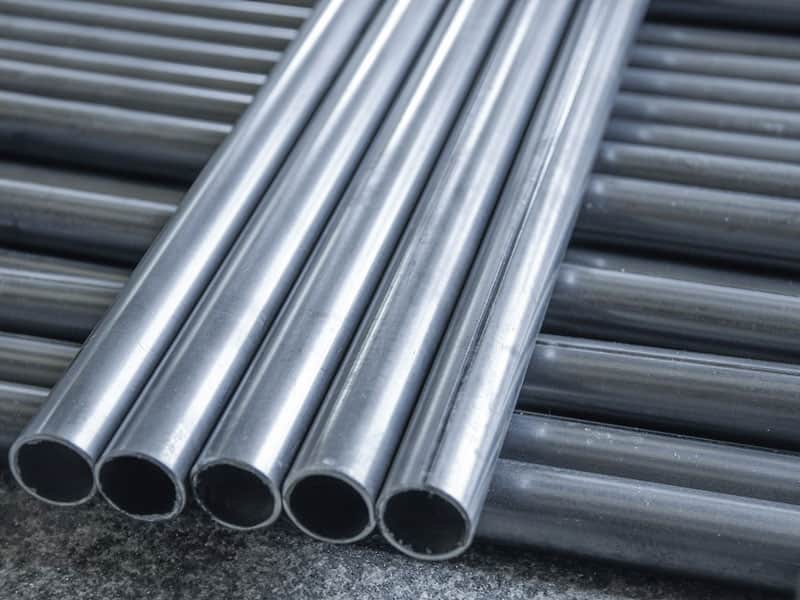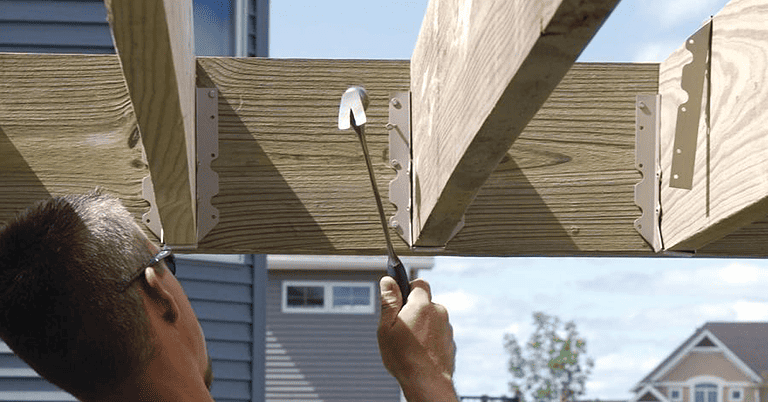Can I Use Galvanized Pipe For Gas (Plumb Natural Gas)
Are you considering using galvanized pipes for your gas applications? Well, the answer may not be as straightforward as you think. Galvanized pipe, with its zinc coating and corrosion resistance, is commonly used for water supply. However, there are some essential factors to consider regarding gas. In this article, we will delve into the world of galvanized pipes and explore whether it suits your gas needs.
But hold on! Before we dive in, let’s talk about natural gas and its characteristics. Understanding how gas lines work is crucial in deciding which type of pipe best suits your application. Now here’s where things get interesting – using galvanized pipe for natural gas can pose potential dangers. The zinc coating may flake off over time, potentially clogging your gas regulators and burner units. Yikes!
So what’s the alternative? Plumbers typically prefer black iron pipes for their strength and safety when carrying gas. These pipes are also more fire-resistant than their galvanized counterparts. This article will provide guidelines from experts regarding using galvanized pipes for gas applications. Safety should always be a top priority when dealing with potentially hazardous substances like natural gas – so let’s find out if galvanized pipes make the cut or if you should opt for black iron instead! (Learn How Hot Does A Motorcycle Exhaust Get)

What is Galvanized Pipe, and How It’s Used?
Galvanized pipe is a type of steel pipe that has been coated with a layer of zinc to protect it from corrosion. It is commonly used in plumbing and fittings for water supply lines. However, it is not recommended for gas applications due to the risk of decay and flaking. The zinc coating on the galvanized pipe can react with sulfur in the gas, causing the coating to flake off over time. This can potentially clog gas regulators and burner units.
Definition of Galvanized Pipe
Coating metal pipes with zinc material and galvanizing them is commonly used to enhance their durability and resistance to corrosion. Galvanized pipe refers to steel pipes coated with zinc on the surface. This coating protects against rust and corrosion, making galvanized pipe suitable for various applications. However, it is essential to note that galvanized pipe is not recommended for gas systems due to the risk of corrosion and flaking. The next section will explore using galvanized pipes in plumbing and fittings.
Galvanized Pipe in Plumbing and Fittings
To ensure the longevity and reliability of your plumbing system, it’s worth exploring the compatibility of different materials regarding fittings and connections. When considering galvanized pipes for gas service, it’s important to note that plumbers prefer black iron gas pipes due to their cost-effectiveness and suitability for gas applications.
However, if you choose to use galvanized pipe, be aware that special attention should be given to installing galvanized fittings.
Now let’s delve into the topic of zinc coating in galvanized pipe.
Zinc Coating in Galvanized Pipe
Did you know that the zinc coating on galvanized pipe adds an extra layer of protection against corrosion and extends the lifespan of your plumbing system?
Here are three key benefits of the zinc coating:
- Prevents rust and corrosion: The zinc coating acts as a barrier, protecting the underlying steel from moisture and other corrosive elements.
- Suitable for gas applications: Galvanized pipe can be used for natural gas distribution, although it isn’t recommended due to potential corrosion issues.
- Durable and long-lasting: The zinc coating increases the pipe’s durability, making it resistant to wear and tear.
Now let’s explore the issue of corrosion and flaking in galvanized pipes.
Corrosion and Flaking in Galvanized Pipe
The corrosion and flaking in galvanized pipes can lead to a crumbling shield that exposes the vulnerable steel beneath. Over time, the zinc coating on galvanized pipes can deteriorate, causing corrosion and flaking. This corrosion can create weak spots in the tube, which may eventually lead to leaks or breaks in the gas line.
It’s important to note that while galvanized pipes may be suitable for water lines, they aren’t recommended for use with natural gas due to the risk of clogging and potential safety hazards. (Learn How Much Weight Can Pvc Pipe Hold)
Use of Galvanized Pipe in Water Lines
Imagine having a water line that delivers clean water to your home, resists corrosion, and lasts for years. When it comes to water lines, the use of galvanized pipes is not recommended. Due to their corrosion resistance, galvanized pipes are more commonly used for natural gas applications. However, when exposed to water, the galvanized coating on the line can rust over time.
To understand why the galvanized pipe is suitable for natural gas, let’s explore natural gas and gas lines…

Understanding Natural Gas and Gas Lines
Natural gas is a widely used energy source for residential homes and businesses. Regarding gas lines, it’s essential to understand the different materials used and their specific uses. Black pipe and galvanized pipe are two standard options, with black pipe being preferred for gas applications due to its cost-effectiveness and suitability. Building codes are crucial in determining gas pipe requirements, including specific materials, installation guidelines, and safety measures.
Gas meters and delivery services also play a vital role in ensuring consumers’ efficient and safe natural gas supply
Natural Gas: An Overview
You’ll be in a risky and potentially dangerous situation if you use galvanized pipe for gas. Galvanized pipe is unsuitable for natural gas due to the risk of corrosion and flaking. It’s essential to use the appropriate materials, such as black pipe, for your gas line to ensure safe and efficient gas delivery.
The following section will discuss different gas line materials and their uses.
Gas Line Materials and Their Uses
Ready to learn about the different materials used for gas lines and how they are used in various applications? When it comes to gas distribution, black iron is the go-to choice. However, there is a misconception about using galvanized pipes for gas. While galvanized steel can be used for some applications, it is not recommended for gas lines due to the risk of corrosion and flaking.
Following local codes and regulations are essential when choosing the appropriate material for your gas line.
Now let’s explore the difference between black pipe and galvanized pipe. (Learn How Long Do Pex Pipes Last)
Difference Between Black Pipe and Galvanized Pipe
Now let’s dive into the contrasting qualities of black and galvanized pipes so you can make an informed decision for your gas line. Here is a table highlighting the key differences between the two types of pipes:
| Black Pipe | Galvanized Pipe |
|---|---|
| Uncoated | Covered with zinc material |
| Used for carrying natural gas and fire sprinkler systems | Used for water supply |
| More muscular and safer for having gas | More resistant to corrosion |
| Manufactured without a seam | Can flake off over time and clog gas regulators |
Understanding these differences will help you choose the suitable pipe for your gas line. Now, let’s explore building codes regarding gas pipes.
Building Codes Regarding Gas Pipes
Let’s explore the essential regulations and guidelines governing gas pipe installation in buildings. When it comes to using galvanized pipe for gas, building codes generally prohibit its use due to the risk of corrosion. Instead, the black iron pipe is commonly used for gas applications. Galvanized fittings should also be avoided in gas piping systems.
Following these guidelines is crucial to ensure safe and efficient gas delivery. Now let’s move on to discussing gas meters and gas delivery services.
Gas Meters and Gas Delivery Services
Little do homeowners know their gas meters and delivery services are vital to their homes’ functionality. Regarding gas pipes, it’s essential to consider the appropriate material for safety and efficiency. While galvanized pipe may be used for water supply, it isn’t recommended for natural gas due to the risk of corrosion and flaking. Black iron pipe is preferred for gas lines, and polyethylene or PVC pipes for underground applications.
Using galvanized pipes for natural gas can pose dangers that homeowners should know about.
Dangers of Using Galvanized Pipe For Natural Gas
Using galvanized pipes for natural gas can pose several dangers. Natural gas can react with the zinc coating on galvanized pipes, causing it to flake off and potentially clog gas regulators and burner units. Additionally, mixing galvanized fittings with black lines can accelerate corrosion and compromise the integrity of the gas system.
It’s important to avoid using galvanized pipes for natural gas and instead opt for alternatives like black steel or plastic pipes.
Does Natural Gas Corrode Galvanized Pipe?
Natural gas can corrode galvanized pipes due to the reaction between sulfur in the gas and the zinc coating on the line. Over time, this reaction can cause the zinc coating to flake off, potentially leading to clogs in gas regulators and burner units. This is why the galvanized pipe is not recommended for use with natural gas. Now that we understand how natural gas can corrode galvanized pipe let’s explore the problems that arise from using galvanized pipe in gas services.
Problems of Using Galvanized Pipes in Gas Services
Imagine the potential headaches and costly repairs you could face by installing the wrong type of piping for your gas services. Using galvanized pipe for gas can lead to several problems:
- Corrosion: The zinc coating on galvanized pipes can flake off over time, clogging gas regulators and burner units.
- Incompatibility: Sulfur in natural gas can react with the zinc coating, causing it to deteriorate.
- Safety concerns: Galvanized pipes aren’t as fire-resistant as black iron pipes, increasing the risk of accidents.
- Code compliance issues: Many local codes prohibit or discourage using galvanized pipes for natural gas due to these issues.
Next, let’s explore whether PVC and plastic pipes can be used for natural gas.
Can PVC and Plastic Pipe Be Used for Natural Gas?
If you’re considering using PVC or plastic pipe for your natural gas line, it’s essential to understand the limitations and safety considerations. While PVC pipes are commonly used for water lines, they aren’t suitable for transporting natural gas or propane.
On the other hand, utility companies have used plastic pipes for years to transmit natural gas safely and effectively.
Now let’s discuss the use of galvanized fittings with black pipe…
Use of Galvanized Fittings With Black Pipe
Luckily, homeowners and professionals have found a solution to prevent corrosion and ensure efficient gas heating in their dream homes by combining black iron pipes with galvanized fittings. While the galvanized pipe is unsuitable for natural gas, using galvanized fittings with black pipe is allowed. The difference between black pipe and galvanized pipe lies in their coatings. So, using a galvanized fitting where necessary, the integrity of the gas line can be maintained.
Now let’s explore the consequences of clogs and blockages in galvanized pipes…
Consequences of Clogs and Blockages in Galvanized Pipes
When using galvanized fittings with black pipes, there is a risk of clogs and blockages in galvanized pipes. The zinc coating on galvanized pipes can flake off over time, causing it to accumulate and potentially block the gas flow. This can lead to decreased efficiency and even safety hazards. Knowing the potential consequences when considering using galvanized pipes for gas applications is essential. Let’s explore using black iron pipe in gas line installation. (Learn How To Replace Subfloor Under Wall)

The Use of Black Iron Pipe in Gas Line Installation
Regarding natural gas line installation, black iron pipe is the preferred choice due to its cost-effectiveness and suitability for gas applications. Compared to galvanized steel pipe, the black iron pipe is more commonly used for gas lines because it lacks the zinc coating that can flake off and potentially clog gas regulators and burner units.
Additionally, black iron pipe complies with plumbing codes such as the Universal Plumbing Code (UPC), making it a reliable option for safe and efficient gas line installations.
Why Is Black Iron Pipe Used For Natural Gas?
Use black iron pipes for natural gas to ensure safe and efficient gas delivery in your dream home. Black iron pipe is cost-effective and suitable for gas applications, making it the preferred choice. Unlike galvanized pipe, the black iron pipe is specifically designed to carry natural gas and is commonly used in fire sprinklers and manufactured gas systems. It provides strength, safety, and reliability for your gas regulators and burner units.
Now let’s explore the differences between black and galvanized steel pipes.
Black Steel Pipe Vs. Galvanized Steel Pipe
If you think using black steel pipes instead of galvanized steel pipes for your dream home is a good idea, you’re in for a surprise. When it comes to pipes used for gas, galvanized pipe is prohibited from being used. The main difference between black and galvanized steel pipe is their coatings. Galvanized pipe is covered with zinc material, which can flake off over time and clog gas regulators and burner units. Now let’s explore why the black iron pipe is better than galvanized.
Why is Black Iron Pipe Better Than Galvanized?
Black iron pipe outperforms its galvanized counterpart in several key areas.
- Galvanized pipe for gas: It’s not suitable due to the risk of flaking and potentially clogging gas regulators.
- Difference: Black iron pipe is more robust and safer for gas than galvanized steel.
- Burner units: Galvanized pipes can flake off over time, leading to potential issues with burner units.
- Clog gas regulators: The zinc coating on galvanized pipes can also cause problems with gas regulators.
Now let’s discuss the importance of black iron piping for gas regulators.
Black Iron Piping and Gas Regulators
Now let’s discuss the relationship between black iron piping and gas regulators. Using galvanized steel pipes can be problematic when it comes to natural gas. Over time, the zinc coating on galvanized pipes may flake off and clog gas regulators and burner units. That’s why plumbers prefer to use black iron pipes for gas applications.
Ensuring your gas delivery system is efficient and free from potential issues is essential.
Now, let’s move on to plumbing codes and the use of black iron pipe…
Plumbing Codes and The Use of Black Iron Pipe
Plumbing codes dictate the proper materials and installation methods for efficient gas delivery systems in residential and commercial properties. Black iron pipe is the preferred choice for gas pipes due to its cost-effectiveness and suitability for gas applications. Galvanized pipe, on the other hand, is not recommended for gas use according to plumbing codes. This ensures that gas lines are installed correctly and safely.
Now let’s move on to the guidelines for plumbers regarding galvanized and gas pipes.
Guidelines for Plumbers Regarding Galvanized and Gas Pipes
When working as a plumber, it’s essential to know when to use galvanized pipe and when to use black pipe for gas installations. The galvanized pipe should be used when water supply lines are involved, while the black tube is the preferred choice for gas applications.
The transition between galvanized and black pipe can be seamless using appropriate fittings and connectors. APolyethyleneand PVC pipes may also be used in certain gas services. Still, following the guidelines provided by the International Residential Code (IRC) for proper pipe use in the gas industry is essential.
When a Plumber Should Use Galvanized Pipe
Although galvanized pipe isn’t recommended for gas applications due to the risk of corrosion and flaking, there are specific circumstances where a plumber may choose to use it. The galvanized pipe can be used in non-gas carrying areas, such as fittings or transitions, where it won’t come into direct contact with the gas. However, it’s important to note that using galvanized steel for gas lines can lead to flaking, which may clog your gas regulators and cause issues.
Now let’s discuss when a plumber must use black pipe for gas.

When a Plumber Must Use Black Pipe for Gas
To ensure the safety and efficiency of your gas heating system, it’s essential for a plumber to install black pipes. Black pipe is designed for gas applications, making it the ideal choice. It is stronger and more resistant to corrosion compared to galvanized pipe. Using black pipecan avoid potential issues such as accelerated corrosion and clogging. Now let’s explore the seamless transition between galvanized and black line in the next section.
How Seamless is The Transition Between Galvanized and Black Pipe?
When a plumber must use black pipe for gas, it is essential to understand how seamless the transition between galvanized and black lines can be. Here are four key points to consider:
- Galvanized pipe is not recommended for fuel gas applications due to its zinc coating, which can flake off.
- Black pipe is designed to carry natural gas and is the preferred choice for plumbers.
- The International Residential Code (IRC) allows using galvanized pipes for natural gas piping, but local codes may vary.
- It’s crucial to consult with local regulations and codes before using galvanized or black pipes.
Now let’s explore the topic of polyethylene and PVC pipes in gas services.
Polyethylene and PVC Pipes in Gas Services
Polyethylene and PVC pipes, like colorful threads weaving through a vibrant tapestry, offer alternative pathways for energy flow in gas services. However, it’s important to note that galvanized pipe isn’t recommended for gas services due to the risk of corrosion and flaking.
Polyethylene and PVC pipes are durable materials that can be used safely for gas transmission.
Now let’s explore the IRC guidelines for pipe use in the gas industry.
IRC Guidelines for Pipe Use in the Gas Industry
IRC provides specific guidelines for selecting and installing piping materials in the gas industry. There are particular considerations to remember when using galvanized pipes for gas. According to IRC guidelines, galvanized pipe isn’t recommended for gas services. Gas into homes should generally require a black line. The tube is manufactured specifically for gas applications and should be used accordingly. Orifice taps, regulators, and other equipment also require black pipe.
These guidelines ensure safe and efficient gas distribution within residential and commercial properties.







